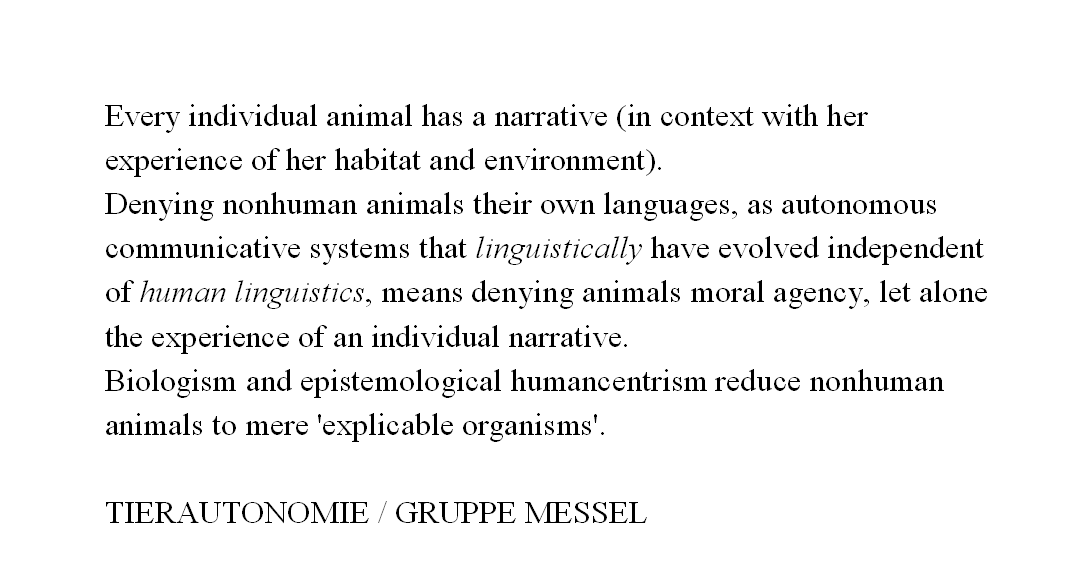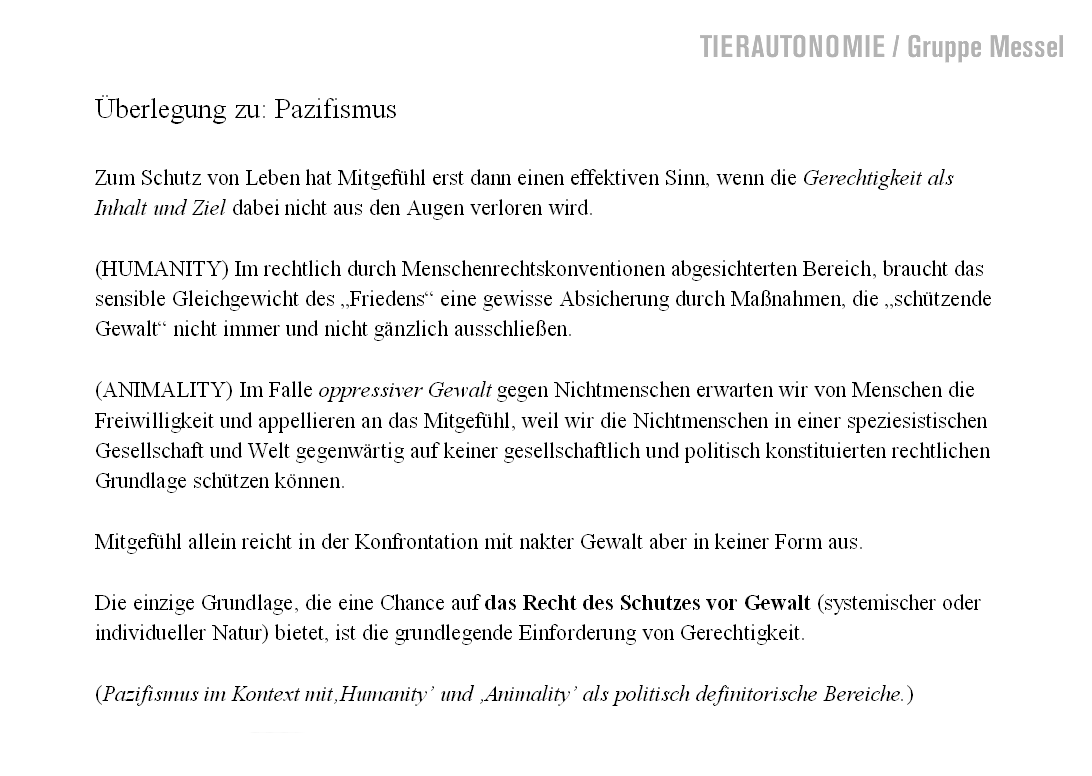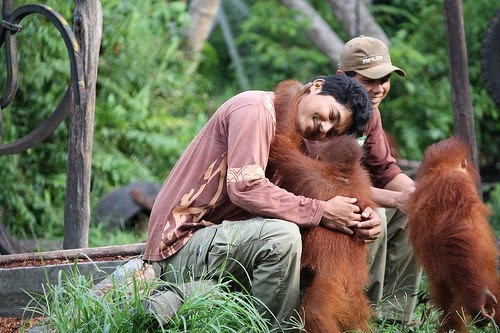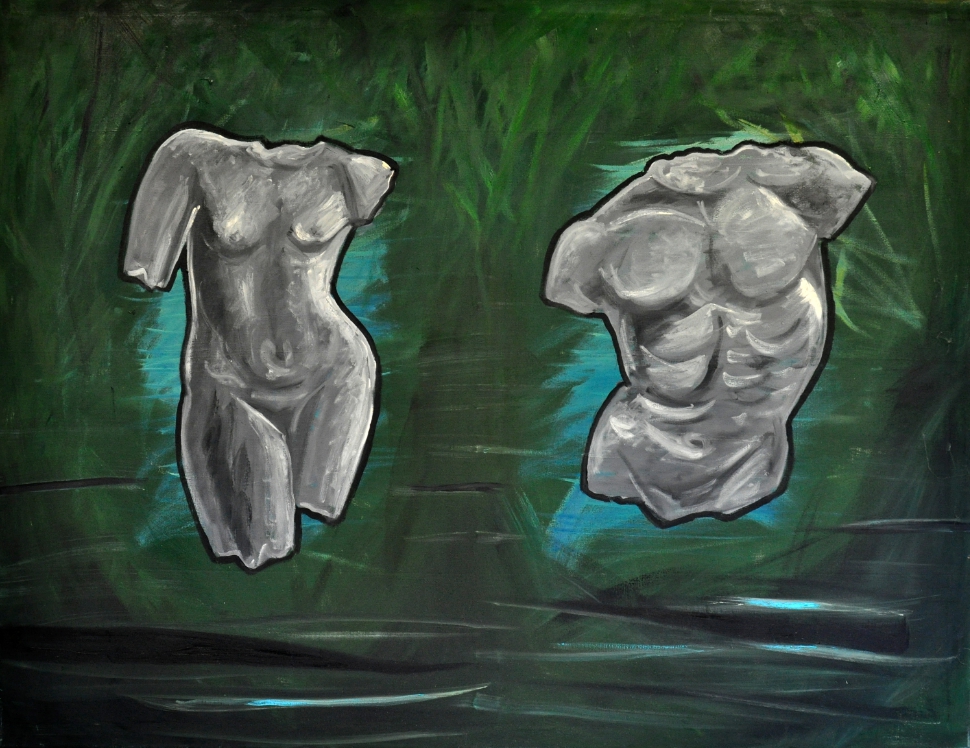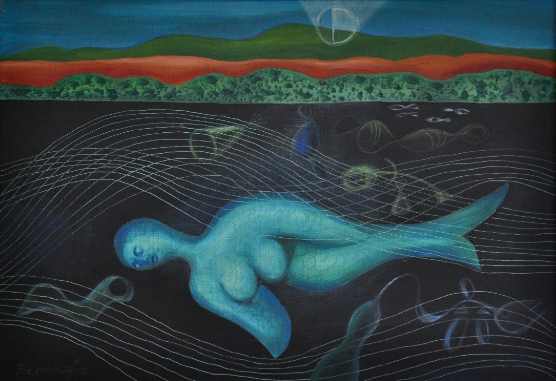
Io – Farangis G Yegane
Animal Thealogy:
Man-Machine? Animal Reason! (2)
(And this was part one of that text.)
Palang LY
A geometrical image
Imagine two abstract groups. Group A consists of triangles and everything that surrounds them becomes mathematically relevant to their own triangular form. This happens as all that either resembles or does not resemble a triangle appears in a certain colour.
Group B are circles.
Now group A says that group B aren’t triangles (because A are triangles) and that B also weren’t squares or rectangles.
Does any reason follow from this that would mathematically legitimate for the circles to be excluded as equally valid geometrical figures?
The triangles are different compared to the circles, but both are geometrical figures and insofar of an equal value.
They can be correlated due to each of their geometrical qualities, even when the circles do not match the characteristics of the triangles!
Let’s take this as our metaphor
Sociology does not question the social interaction between humans and nonhuman animals. They don’t scrutinize that relation from their viewpoint, because the view held on the human relation towards animals is already set in its core by the natural sciences.
The hierarchical empire built by the natural sciences though [and along with it the humanistic knowledge on which the natural sciences base upon] rules every need for any further examination and consideration of this relationship out. We do not see the direct relation between humans and nonhuman animals.
A most typical exemplification of that inability to relate on a basic and fundamental level of ‘common sense’ can be pinpointed in the difference between relating to nonhuman animals in terms of “joy” versus “love”: as in “animals equally feel joy” or “we can both love”, and “pain” versus “violence”: as in: “animals can equally feel pain” or “we can both experience violence”. Love is a intermittent sentiment, violence also basis on social interactivity (though in that negative sense), where as “joy” is located only in the subject we attribute the feeling to, and the same goes for “pain”.
We – nonhuman animals and humans – understand the questions of LOVE and VIOLENCE. Whereby “joy” and “pain” are reductionary names for the “same” thing.
Regarding the question whether animals can be regarded in any way as moral agents, one has to ask, does moral exist outside the human concept of morality?
When we discuss morality we presume that the substance matter which the term comprises came into life through our perceptions, and because we define what „moral“ means, we can claim a described phenomenon as solely ours.
What does morality consist of?
Does morality solely exist because of a theoretical framework? One can doubt that. Morality on the one side has something to do with basic social interaction, through that morality gains value.
On the other side are the superordinate agreements about morality, which are declared and decided upon by an elite or defining group/process, but through that the agreements about morality only contain a forced validity, which is disconnected from its own basis, that is: the meaning of social interaction between beings (i.e. the construct about morality excludes that what lays outside of its hierarchy, other forms of interaction that contain „social values“ ).
On the individual plane exists that what any “I” perceives and experiences in her lived interactions and experiences as „morally okay“. And that can be between nonhuman animals or humans in the whole environmental context – seen from a common sense point of view if we take the human view.
When we discard the human decorum that surrounds and sticks to the word morality, we can say that every action has a moral implication, non-anthropocentrically seen.
It’s always the same: otherness. We have to accept it.
Animals have a very different philosophy-of-living in a neutral comparison to our philosophy of life, and I believe one can use the term philosophy here to describe the yet unnamed phenomenon in nonhumans animals of how they structure and perceive their own lives.
I ask myself whether the human problem with nonhuman animals isn’t rather to be found in the differences of their philosophies-of-life when compared to our typically human ones.
The problems lie much more in this radical otherness from us, than in the reasons of gradual biological differences or in the often assumed moral impotence on this other one’s (the animal’s) behalf.
The problem thus seems to fluctuate around the scope of difference and coinciding similarity. In many aspects we equal nonhumans animals a lot, but in the aspect of our dominance claim finally, we see nonhuman animals as „the losers“, the bottom of the evolutionary or divinely ordained hierarchical order on which we can postulate our violent and hypocritical sense of power.
That nonhuman animals are the losers amongst the biological animals is even an attitude that some of their advocates purport. I often meet people who won’t reckon a unique, self-sufficient quality seen to be in the closeness and distance amongst the different animals (including human animals). In the forefront of every argumentation there is always: how are they in comparison to us. As if humans and nonhuman animals had to compete on an „equal” scale … and another related argumentation goes: how much of their „instinct“ could possibly entitle them to be granted rights; right that would protect them from humans (whereby it is highly questionable whether those who have prejudices against you, can really grant you your own rights.)
Human society, it seems, will always consider the „us“ and the „we“ as objectively more important, insofar as the „we“, the how „we are“, is the criterion, and nonhumans animals are measured against it.
The crucial point is to accept others and to accept the validity of otherness. For the others and maybe even for us!
Reaching far? Animal Thealogy – female animal deities, female human deities, on the terms of such angles.

